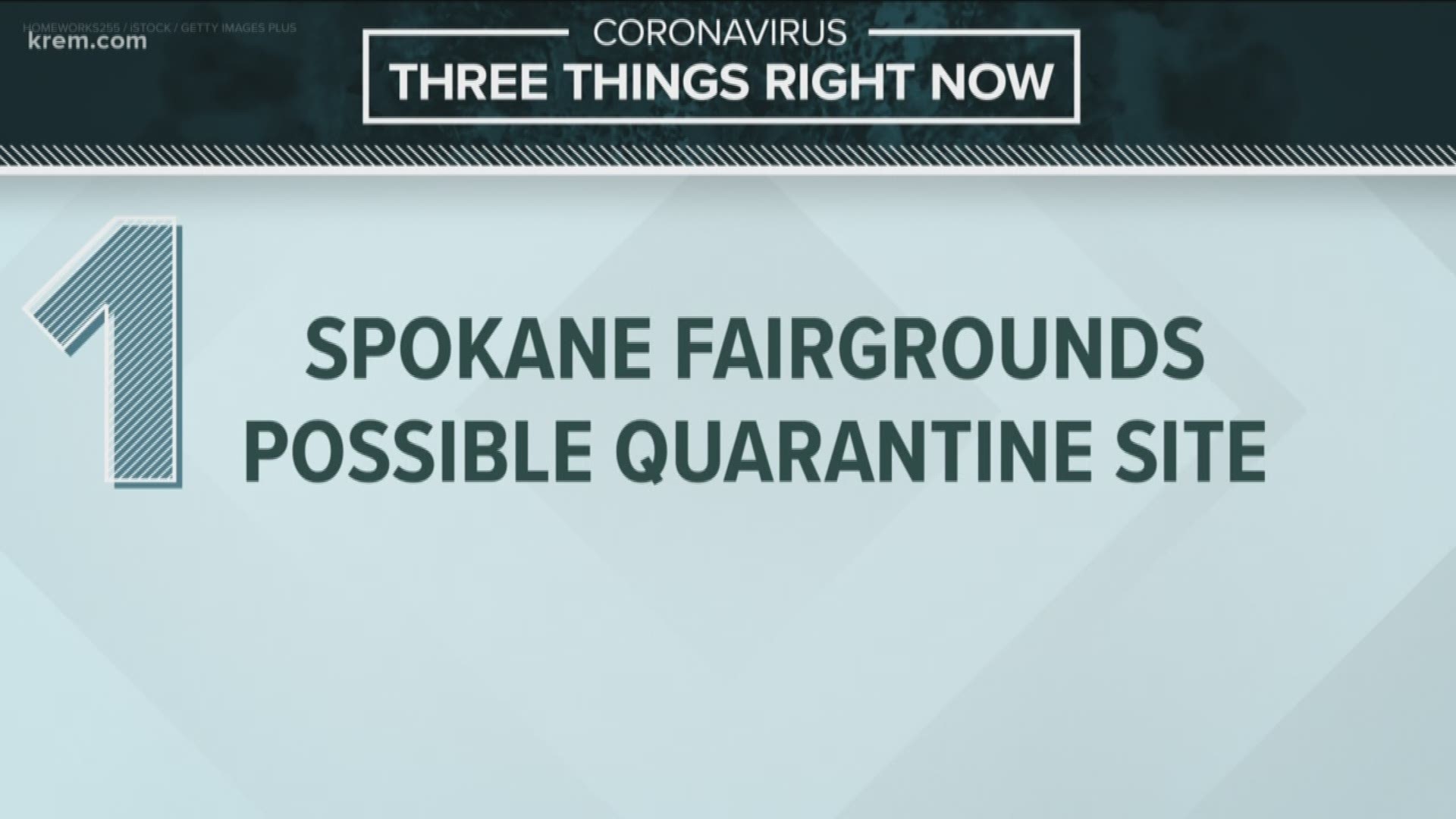SPOKANE, Wash. — The drive-thru coronavirus screening and testing site will reopen at 10 a.m. on Thursday in a building that's better suited to handle inclement weather, according to Spokane Regional Health District spokesperson Kelli Hawkins.
The drive-thru was previously closed due to inclement weather.
On Monday, tents at the site blew over in the wind. The site was then closed due to safety issues.
Visitors will no longer enter from the main entrance on Havana. You will now be asked to enter through the gates on Broadway by the horse barns.
The drive-thru screening will be open Monday through Friday 10 a.m. to 5 p.m., Saturday and Sunday 10 a.m. to 3 p.m. until further notice, based on resources.
According to the health district, the Spokane region, along with the rest of the country, is experiencing a limited number of testing supplies. So, following current protocol, only those meeting testing criteria will be given a test.
People with a fever and a cough or shortness of breath who fall into a high-risk category should visit the screening site to determine if a test is warranted.
High risk categories include:
- People over 60 years old
- Those who have an underlying medical condition
- Health care workers and/or first responders who have cared for someone who may have the virus
Lutz said earlier this week that about 3,000 people have been screened at the site and one-third of those people were tested, though he couldn't give specific numbers.
Spokane County health officials said people who think they need to be tested for the virus while the screening area is closed need to go through their individual doctors or a nurse hotline. Patients will be asked a series of questions about their symptoms to determine if they need a test.
The fairgrounds are also being prepared as a possible quarantine and isolation site to help with the response to coronavirus, according to City of Spokane spokesperson Brian Coddington.
Coddington added that numerous facilities throughout the city are being evaluated for their potential uses. However, the city still needs to gather more information before making final decisions.
"Keeping healthy and unhealthy populations separated is one of the key factors determining the best use for a location," Coddington said.
A full regional team is working on assessing sites daily, according to Coddington.

